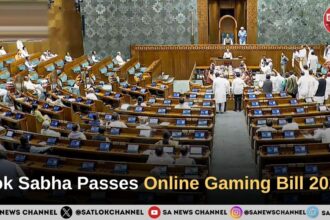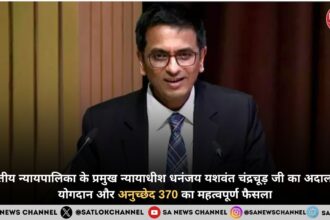The British Broadcasting Corporation (BBC) is facing a significant crisis of trust, culminating in the resignations of Director-General Tim Davie and CEO of News Deborah Turness. The catalyst is an explosive internal dossier, authored by a former independent adviser and leaked to The Telegraph, alleging “serious and systemic problems” with impartiality at the taxpayer-funded broadcaster.
The document, written by Michael Prescott of the BBC’s Editorial Guidelines and Standards Committee (EGSC), details alleged bias, deceptive editing, and malpractice across sensitive topics, including the 2021 Capitol Hill riot, the Israel-Gaza conflict, and the trans debate.
In response, BBC Chairman Samir Shah has issued a formal apology for a key “error of judgment” and announced restructuring, but not before his top executives resigned. This article examines the Prescott dossier’s core allegations, the BBC’s response, and the implications for the corporation.
The Prescott Dossier: A Systemic Failure
Michael Prescott’s role on the EGSC gave him a unique vantage point to observe the BBC’s internal processes. His memo claims he repeatedly raised grave concerns with the BBC executive but was “dismissed, ignored, and even accused of cherry-picking.”
The dossier’s thesis is that the BBC has failed its core impartiality mandate, pursuing specific narratives through deceptive practices and the willful omission of counter-evidence.
Allegation 1: The ‘Trump: A Second Chance’ Panorama Scandal
A primary focus of the dossier is a 2024 BBC Panorama, “Trump: A Second Chance,” which investigated the lead-up to the January 6, 2021, Capitol Hill riot. Prescott alleges the documentary “materially misled viewers” through deceptive editing.
Deceptive Splicing
The program presented a clip of then-President Donald Trump’s speech:
“We’re going to walk down to the Capitol… and we fight. We fight like hell.”
This was not a single statement. The BBC spliced two clips that occurred 54 minutes apart.
- The First Clip (Actual): “We’re going to walk down to the capital… and we’re going to cheer on our brave senators and congressmen and women.”
- The Second Clip (54 minutes later): “…and we fight. We fight like hell.”
The edit removed Trump’s call to “peacefully and patriotically make your voices heard.” Prescott’s memo argues this created the false impression of a direct call for a violent assault on the Capitol.
Furthermore, the program allegedly used footage of the Proud Boys marching toward the Capitol before Trump had begun his speech, misleadingly implying they were acting on his directive. This incident drew parallels to the 2007 “Crowngate” scandal, which also involved misleading editing of Queen Elizabeth II and led to a key executive’s resignation.
Allegation 2: Biased Reporting on the Israel-Gaza Conflict
The dossier accuses the BBC of consistent anti-Israel bias, particularly within its BBC Arabic service. Prescott alleges “claims against Israel seem to be raced to air… evidencing either carelessness or a desire always to believe the worst about Israel.”
Mass Graves at Al-Nasa and Al-Shifa
In April and June 2024, BBC reports on mass graves in Gaza “strongly implied” Israeli forces were responsible for burials and war crimes. Prescott claims the EGSC was told this was wrong, and the “most likely explanation” was that Palestinians had buried their dead before the Israeli ground forces arrived. Critically, the dossier alleges the BBC knew this, as its own prior reporting had shown Palestinians digging mass graves in the same areas.
Discrepancies in BBC Arabic
The report highlights stark differences between the English and Arabic services. When a Yazidi woman was rescued from ISIS captivity in Gaza by Israeli forces, the BBC English story reported the facts. The BBC Arabic version, however, dedicated nearly 600 of its 1,000 words to a Hamas statement challenging the account – a rebuttal absent from the English report.
Platforming Extremist Views
The dossier reveals BBC Arabic repeatedly platformed three individuals with extremist views as “journalists” or “eyewitnesses,” including one who called a terrorist a “hero” and another who suggested Jews be “burned as Hitler did.” The dossier refutes the BBC’s “eyewitness” claim, noting their “hundreds of appearances” made them de-facto journalists.
Allegation 3: ‘Bias by Omission’ in the Trans Debate
The dossier’s third major allegation concerns the trans debate. Prescott alleges the BBC’s specialist LGBTQ desk has been “captured by… promoting the Stonewall view,” resulting in “bias by omission.”
The memo claims reporters from this desk “refuse to cover any stories'” that raise “difficult questions” (e.g., on the safety of trans care), even when widely covered by other outlets. This allegedly led to a “constant drip-feed of one-sided stories.”
Examples of omissions include:
- A lack of “de-transitioner voices.”
- Scant coverage of women campaigning for single-sex spaces.
- One-sided reports, such as a “gushing tale” about a transgender wrestler (a biological male) winning in women’s competitions, which glossed over the competitive issue.
The dossier argues this approach presents “contested views” as “established facts.”
The Fallout: Resignations and a Chairman’s Apology
In the wake of the explosive leaked dossier, the BBC faced immediate and severe consequences, culminating in the resignations of both Director-General Tim Davie and CEO of News Deborah Turness. The departures were a direct result of the scandal, particularly the criticism surrounding the 2024 Panorama documentary’s misleading edit of a Donald Trump speech.
Following this leadership collapse, BBC Chairman Samir Shah issued a formal letter to the UK’s Culture, Media, and Sport Committee to address the allegations. In the letter, Shah insisted the BBC had taken the adviser’s (Michael Prescott’s) concerns “seriously” and refuted any suggestion that the corporation “sought to bury” the issues. He argued that the Editorial Guidelines and Standards Committee (EGSC) is designed to “examine the bad news, not the good news” to foster “continuous improvement.”
Also Read: How Indian Schools Can Revolutionize English Learning: The 2025 Blueprint
Shah also rejected the claim that the BBC had “done nothing” in response to internal concerns, stating that over the past three years, the broadcaster had published corrections, changed editorial guidance, and made leadership changes. While acknowledging the flaws, he urged that “a sense of perspective is maintained,” citing the “thousands of hours of outstanding journalism” also produced.
Addressing the “underlying problems” highlighted in the memo, Shah announced specific actions:
- BBC Arabic: The team has been “restructured,” a new Arabic-speaking Head of Editorial Quality has been appointed, and a new social media unit will be set up to verify guests. Shah vowed, “if the problems persist, we will take further action.”
- UK News & Documentaries: A new executive editor for domestic editorial quality has been appointed, and a new director will be “imminently” hired to oversee all long-form journalism, including Panorama.
Regarding the Panorama edit of President Trump’s speech, Shah admitted that concerns had been raised internally at the time. However, the issue was handled as part of a “wider review” of US election coverage rather than a specific complaint, as it “had not attracted significant audience feedback” before the leak. “With hindsight,” Shah wrote, “it would have been better to take more formal action.”
Triggered by over 500 new complaints since the memo became public, the BBC ultimately issued an unequivocal apology: “We accept that the way the speech was edited did give the impression of a direct call for violent action and the BBC would like to apologize for that error of judgment.”
Shah concluded by taking personal responsibility for upholding impartiality, calling it “more necessary now than ever” and reaffirming that the “sacred job of the BBC” is to provide truthful, evidence-based journalism to retain the public’s trust.
A Crisis of Trust
Despite Shah’s apology and reforms, the executive resignations signal a deep crisis. The Prescott dossier provides internal validation for long-held public criticisms of the BBC’s impartiality.
The scandal leaves the broadcaster in a precarious position, needing leadership that can rebuild credibility with both the public and its own advisers. As Prescott’s memo asks, “If BBC journalists are to be allowed to edit video in order to make people say things they never actually said… Why should the BBC be trusted?”
For Shah, and Tim Davie’s successor, restoring faith in the BBC’s “sacred job” of impartial journalism is the most urgent task.
A World Full Of Dummies
The issue of media forging narratives is a very common and problematic one. It misguides the people as well as paints a bad/good picture of something that’s opposite or just not that simple.
Such was the case with Sant Rampalji Maharaj, when He exposed to the world the lies spread for thousands of years, He was met with severe pushback. He showed everyone from all the religious texts the true name, place and work of God. He showed that God was, in fact, Kabir in all holy books and that He is the Tatvadarshi Sant and the final messiah – Supreme God Kabir Sahib: The Father of All Souls – Jagat Guru Rampal Ji.
And the media back then published articles, made videos and broadcast television shows making false accusations and trying to amplify the hate for views.
But, when North India was hit with massive floods in 2025, He revealed himself once again as the messiah, providing necessary materials for flood relief through his Annapurna Muhim. The same villagers who once opposed Him realised He had been right all along and learned the truth. Thus, He showed that it’s ultimately about seeking truth in every situation and validating the facts. The BBC may have made some mistakes, but in the end we are all moving towards an eventual death and the only one who can help us get out of this cycle of birth and death is the True God Kabir and The Tatvadarshi Sant.
FAQs:-
1. Who exposed the BBC’s editorial issues and why?
Ans:- The BBC was exposed by The Telegraph newspaper, which published a leaked internal dossier from a former standards adviser, Michael Prescott. He did so to reveal what he called “serious and systemic problems” with the broadcaster’s impartiality and journalistic ethics.
2. What was the outcome for BBC’s Director-General, Tim Davie?
Ans:- Tim Davie resigned, stating that while it was his personal decision, the scandal over the corporation’s editorial “mistakes” contributed to it, and he had to take “ultimate responsibility” as the leader.
3. Who were the high-profile resignations at the BBC?
Ans:- Following the exposé, both the Director-General, Tim Davie, and the CEO of BBC News, Deborah Turness, resigned from their positions.
4. Did the BBC deceptively edit a Donald Trump speech?
Ans:- Yes, a BBC Panorama documentary “misleadingly edited” a speech by splicing two clips from 54 minutes apart, making it sound like a single, direct call for his supporters to “fight like hell” at the Capitol. The BBC’s Chairman later apologized for this “error of judgment.”
5. What was the source of The Telegraph’s exposé on the BBC?
Ans:- The exposé was based on a leaked 19-page internal memo from Michael Prescott, a former external adviser who sat on the BBC’s own Editorial Guidelines and Standards Committee.









